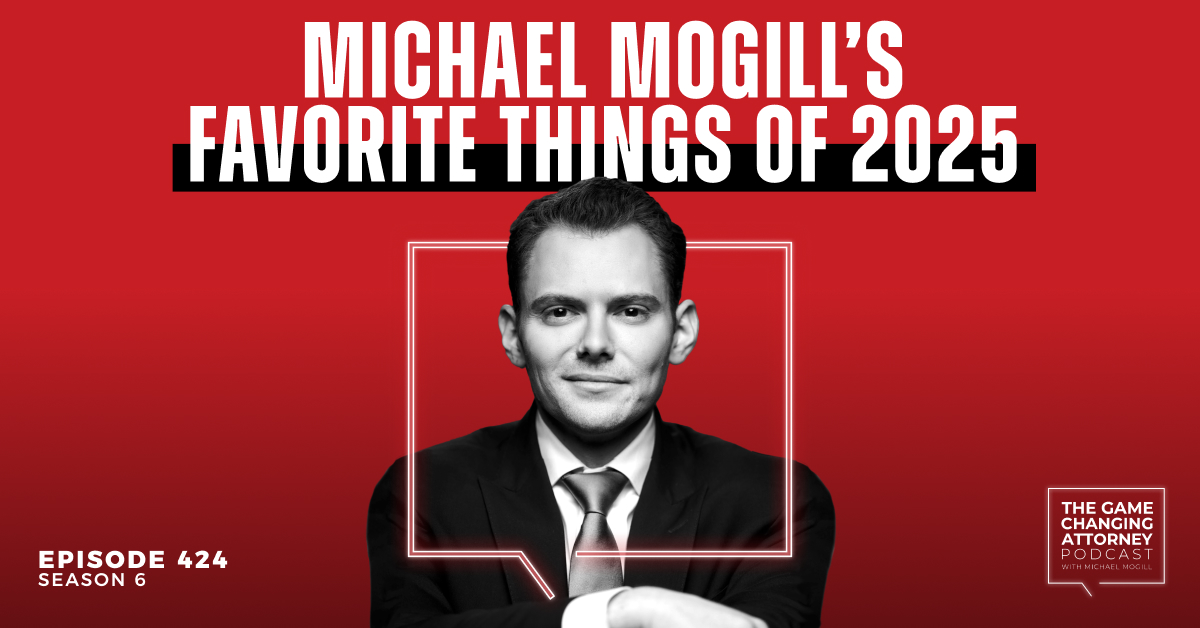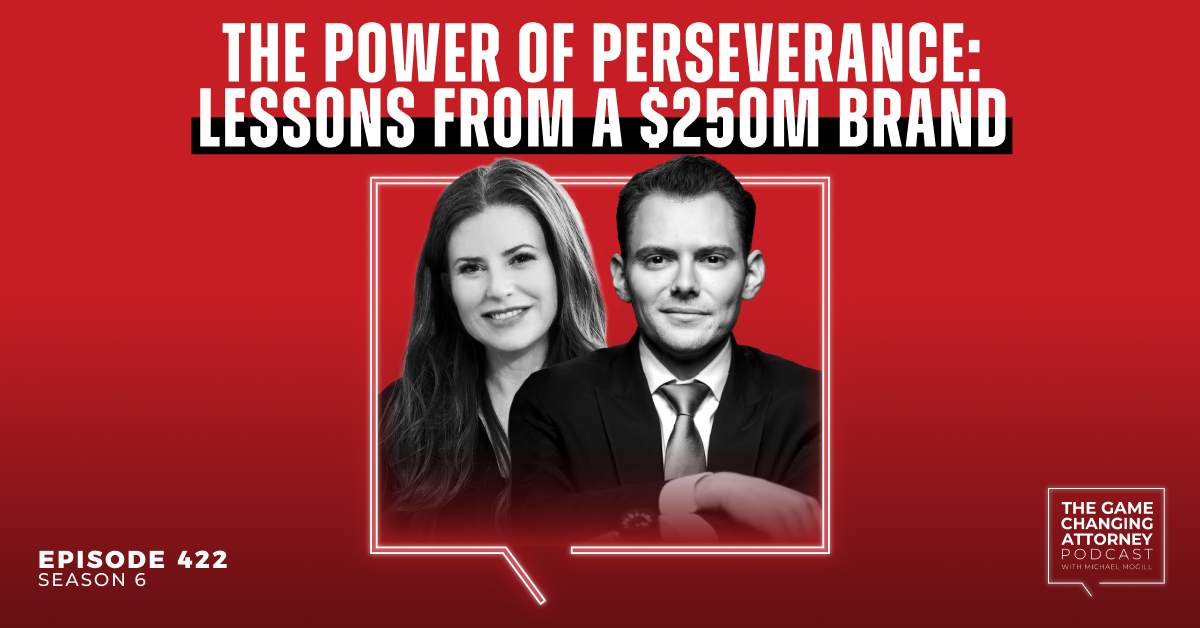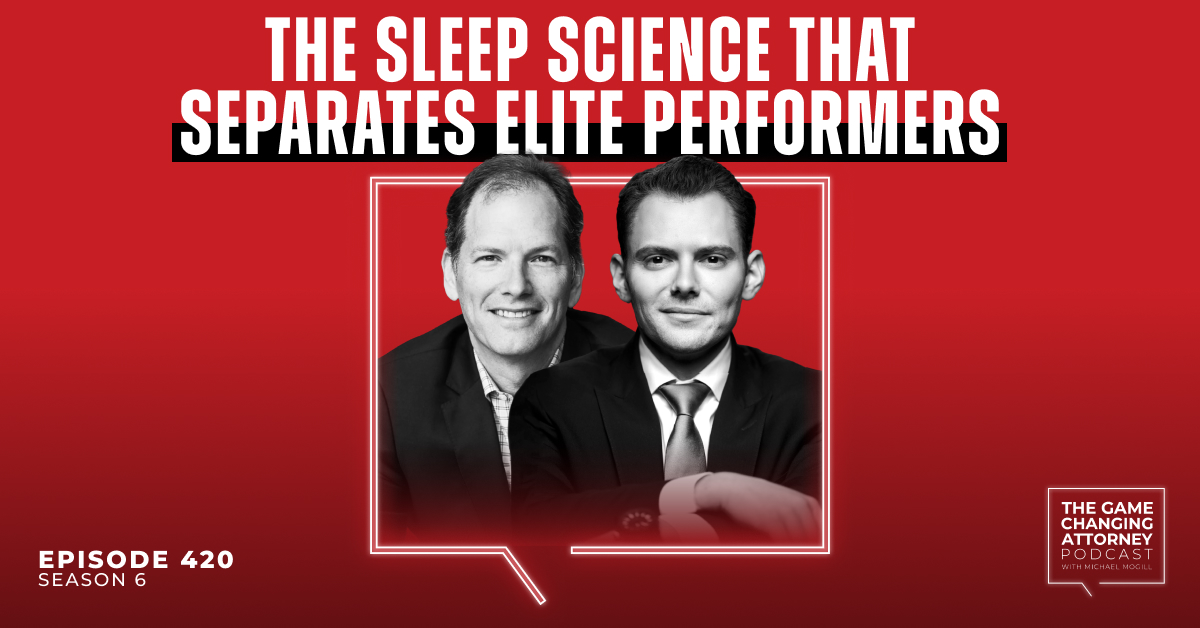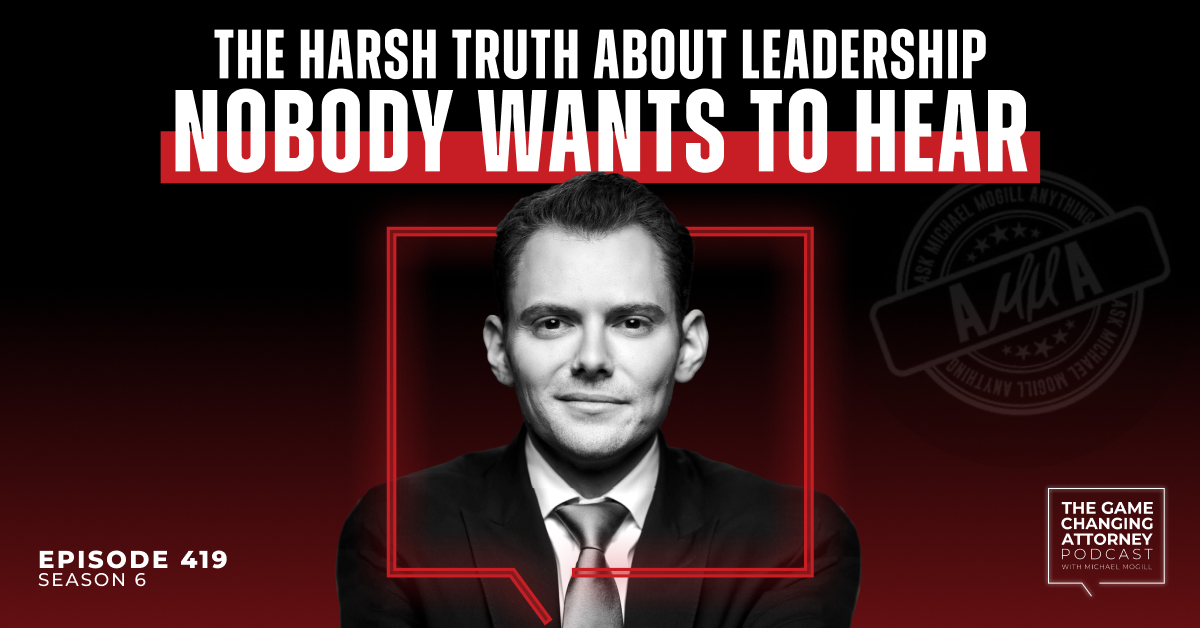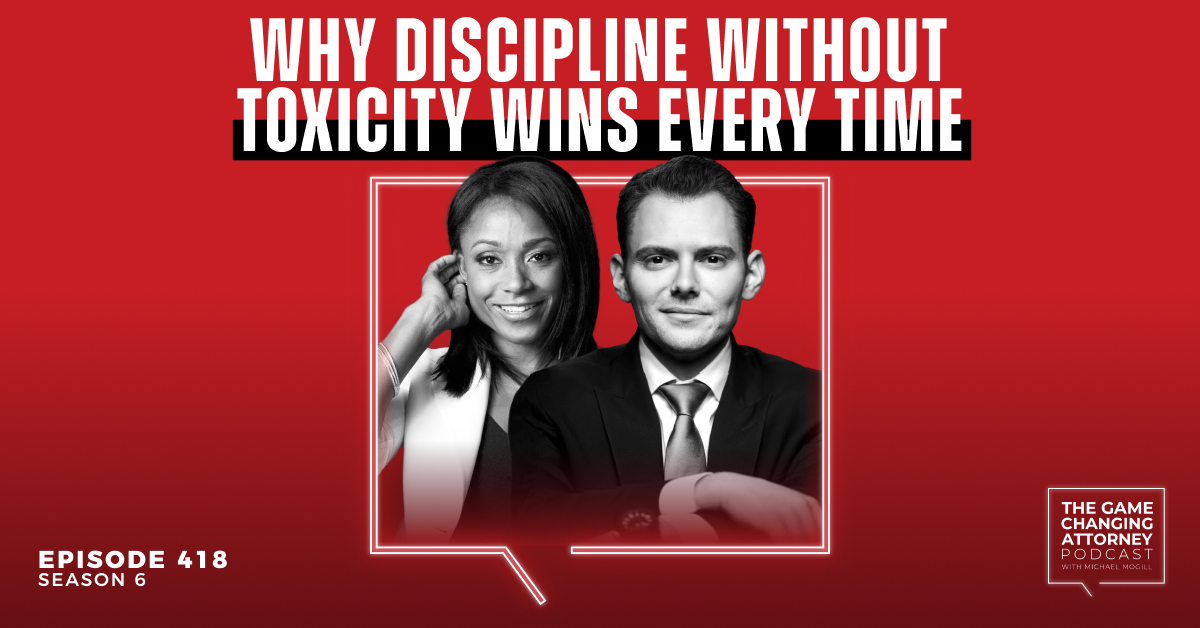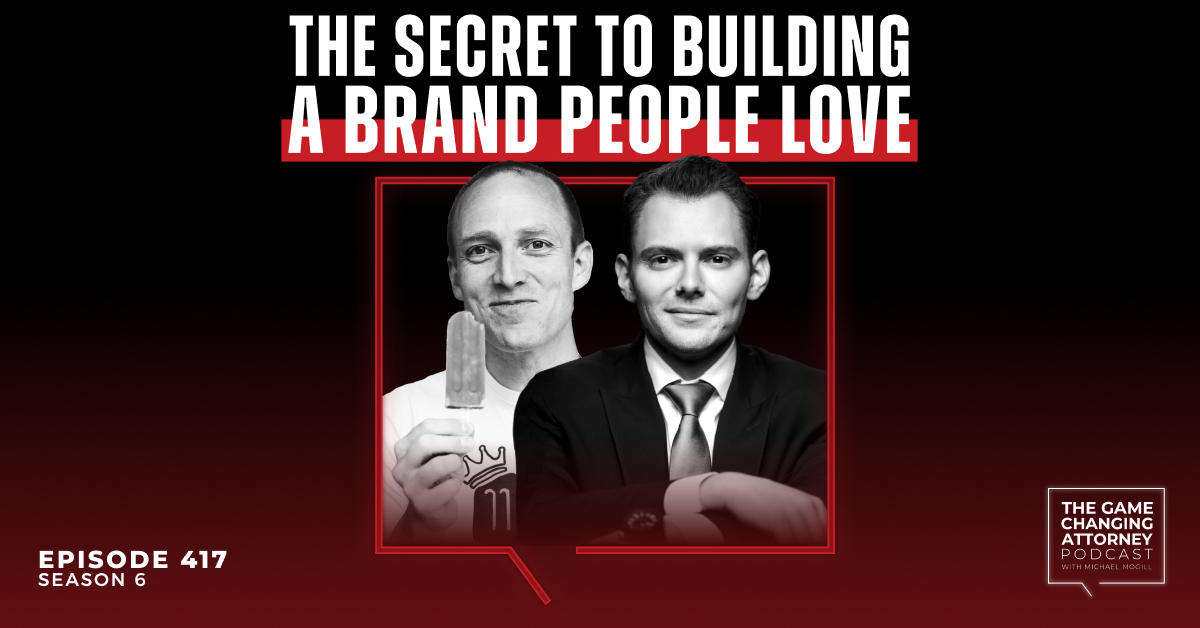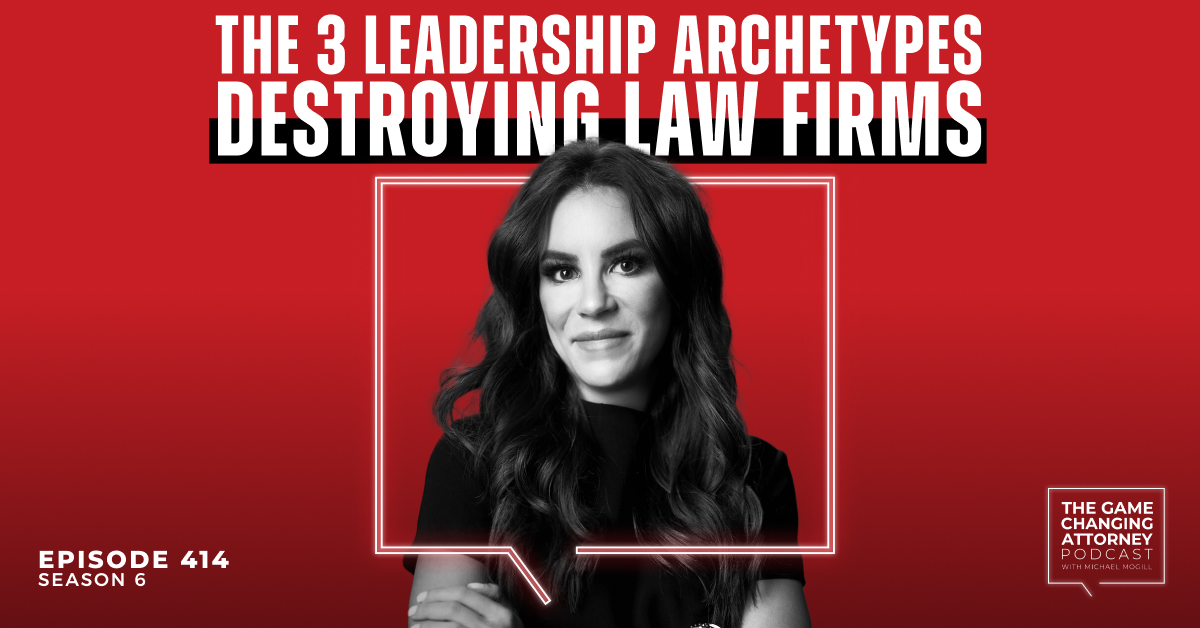

Episode 313 — A-Player Attractors — Winning With Who: Cultivating a Winning Team
Welcome back to The Game Changing Attorney Podcast‘s “Road to the Summit” mini-series! As we continue our journey toward the 2024 Game Changers Summit, each Tuesday we’re diving into impactful conversations with the most powerful moments from previous Summits and speakers you’ll see this year.
In this episode, we’re excited to feature four distinguished leaders in the legal industry who have mastered the art of team building and strategic growth: Rex Elliott, Anna Summersett, Josh Nelson, and Alexander Shunnarah. These influential law firm owners share their experiences and insights on attracting and retaining top talent, fostering an outstanding workplace culture, and propelling their firms toward sustainable success.
Are you seeking to strengthen your team and accelerate your firm’s growth? This discussion will motivate you to refine your approach to leadership, embrace the potential within your organization, and build a culture that thrives.
Here’s what you’ll learn:
- How to retain and nurture A-players to foster long-term engagement
- How to identify and develop qualities that make an exceptional team member
- Why establishing a strong cultural foundation is crucial for lasting success and team cohesion
Join us for an in-depth exploration of how top legal leaders are cultivating teams that drive growth, resilience, and innovation — showing you how to harness the power of your people to build an unshakable foundation for your firm’s future. The road to the Summit is here!
Listen & Subscribe
Show Notes:
Anna Summersett
The secret to retention. “What Crisp taught us is not just about using the hiring funnel and finding the right people, but doing what it takes to retain them. So we’re very intentional about those first 90 days. We are very quick to fire if it does not appear that there’s a good culture fit. But once there is a good culture fit, and we have trained that person, and we have brought them into the fold, we’re going to do what it takes to make sure that they succeed in the industry and within our company — and sometimes that looks like a pivot. They may just not be in the right seat. So we’ve been able to take our A-players and say, ‘If this isn’t your goal, what is it? And how do we get you there?’ And that’s kept them around.”
Replace yourself to free yourself. “Even if I think I’m the best at something, finding someone who can take over even part of what I do and do it 80 percent as well is still going to be beneficial for me. That is still going to be revenue-generating because it’s time-generating. I now have freed up all of that time to pivot toward something that really needs my undivided attention.”
Alexander Shunnarah
What makes an A+ team member. “Someone like myself. I’m someone who has the passion, the energy, the drive. They want it. They’re motivated. There are some days I’m not motivated, but I think of Michael. I know he’s up at four o’clock already in the morning and he’s doing his stuff, and you have to find that type of motivation. But it’s people who just really love their art, their craft, their skill. They’re trying to get better. They’re teachable. They’re just good people.”
Don’t be afraid to push your people. “Each one of your thoroughbreds is not a robot. Figure out who that person is and learn how to speak to them in their own language. What motivates this one won’t motivate that one. But when they know that you care, you’re there with them, you’re open to ideas, you still accept them for who they are, but you push them. We all need pushing. That’s just life. We need pushing. They’re having a bad day? You push them. You motivate them.”
Josh Nelson
Culture is key. “I think getting the culture right is probably the most important part. You can really change a lot of the skills. You can change people’s knowledge base. But you really have to make sure it’s a good cultural fit, because you have to have that team, and if they can’t work well with the team, they’re not going to stick around. I don’t have the same success Anna has with keeping people forever unfortunately, but as we’ve really started hiring and firing more on culture, that’s been the trend that has built a way stronger team than we’ve ever had before.”
Set your new hires up for success. “We have a 60-day onboarding plan.
We use a lot of the stuff from Joey Coleman’s book about sending a video from me to new hires, making sure that when they come in, their desk has their favorite candy, a little gift card, maybe whatever their favorite Starbucks drink is, but then following up with them every week for those first 60 days to make sure that they’re making the progress that we want — and that also helps us determine whether or not they’re the right people. Those are the milestones that you get some visibility to weed out the people that your testing didn’t find, but to get the buy-in for the people is that real 60-day plan. Some positions have 120-day onboarding now, and we’re continuing to grow that trying to turn it into a real year-long process.”
Rex Elliott
Avoid panic hires. “We kind of faced a crossroads about five or six years ago, and the first thing that we had to do was stop doing all the things that we were doing wrong, one of which was panic hires. We’d hire people as soon as we needed them, and that always led to getting somebody that we didn’t want to have in there. It was just a terrible cycle.”
Challenges that come with hiring a C-suite. “When you bring somebody in — like we just hired our COO — you can’t let him come in and just blow everything up. He’s got to feel it out a little bit, build relationships, and understand who people are. We work really hard on allowing our people to grow, and sometimes that means putting them in uncomfortable positions. We do a lot of our marketing through national publicity in our cases, and I don’t hesitate to put one of my young lawyers in front of the camera, even if they’re nervous about it. It helps them grow. And that’s a role that I think our COO is going to be able to fill a little better than I can in the future. So I think we’ve avoided the challenges and the struggles by, when somebody comes in like that, taking it nice and slow, surveying the lay of the land before you jump in and start making changes.”
Connect with Michael
- Text directly at 404-531-7691
